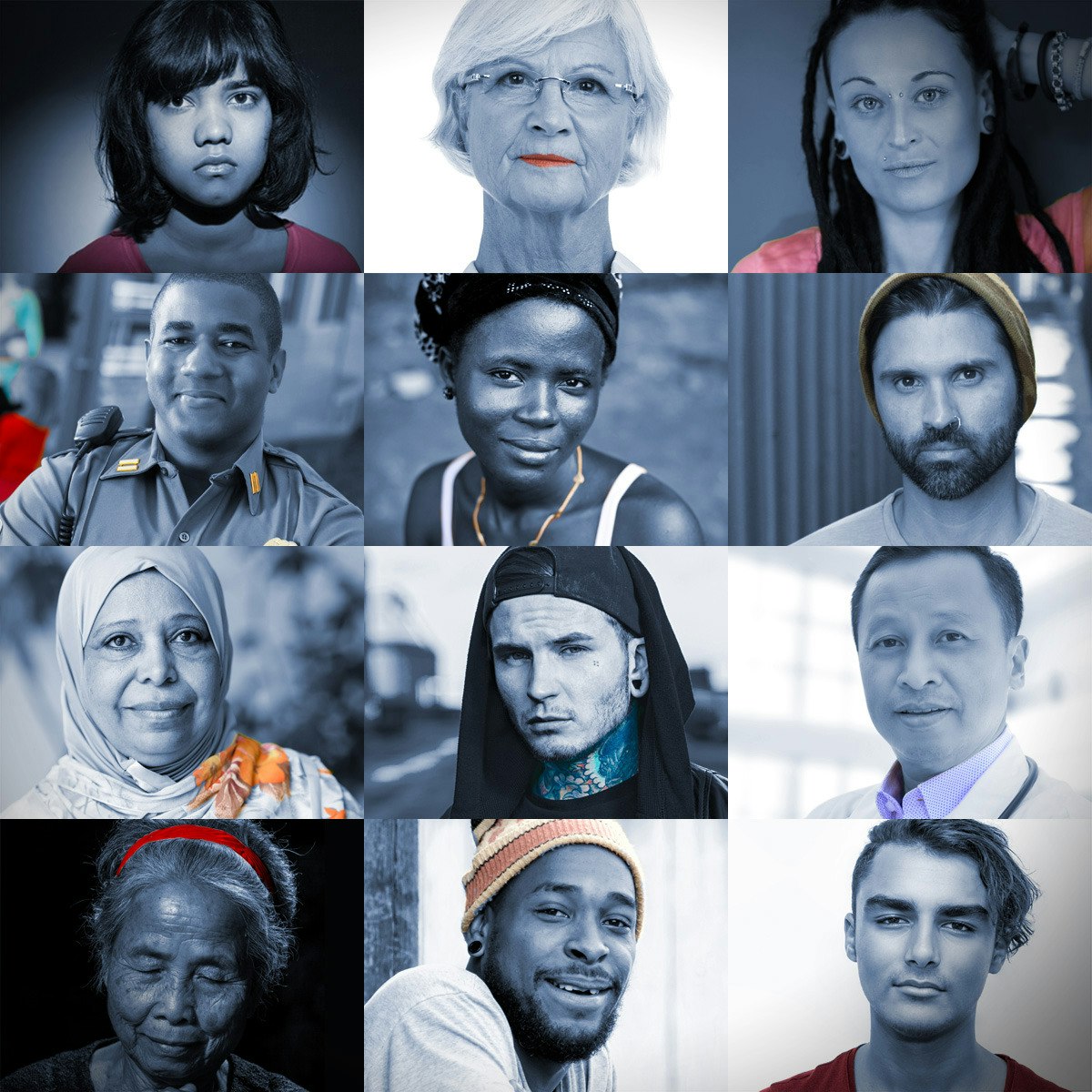Back to Courses









Governance And Society Courses - Page 12
Showing results 111-120 of 270

Animals, Self, and Society
This course explores how animals and people are situated within the web of structures and connections known as “society.” Module 1 considers some of the key symbolic roles that animals play in society by investigating the practice of “thinking with animals.” We investigate how people construct different meanings of animals and the implications these meanings have for both animals and humans. You will gain first-hand experience of this by analyzing how animals are represented in the media. Modules 2 and 3 investigate human-animal relationships, including those that involve suffering as well as those that are beneficial. Although many people describe their pets as friends or family members, Module 2 takes a deeper dive into what constitutes friendship and family membership where other species are concerned. Module 3 examines the dark side of these relationships, focusing on animal abuse and its relationship to domestic violence. Module 4 focuses on people’s encounters with those animals outside the boundaries of the home and the farm. The way people understand and regard the species commonly considered “wild” shapes the treatment and moral status of these animals.

Network Dynamics of Social Behavior
How do revolutions emerge without anyone expecting them? How did social norms about same sex marriage change more rapidly than anyone anticipated? Why do some social innovations take off with relative ease, while others struggle for years without spreading? More generally, what are the forces that control the process of social evolution –from the fashions that we wear, to our beliefs about religious tolerance, to our ideas about the process of scientific discovery and the best ways to manage complex research organizations?
The social world is complex and full of surprises. Our experiences and intuitions about the social world as individuals are often quite different from the behaviors that we observe emerging in large societies. Even minor changes to the structure of a social network - changes that are unobservable to individuals within those networks - can lead to radical shifts in the spread of new ideas and behaviors through a population. These “invisible” mathematical properties of social networks have powerful implications for the ways that teams solve problems, the social norms that are likely to emerge, and even the very future of our society.
This course condenses the last decade of cutting-edge research on these topics into six modules. Each module provides an in-depth look at a particular research puzzle -with a focus on agent-based models and network theories of social change -and provides an interactive computational model for you try out and to use for making your own explorations!
Learning objectives - after this course, students will be able to...
- explain how computer models are used to study challenging social problems
- describe how networks are used to represent the structure of social relationships
- show how individual actions can lead to unintended collective behaviors
- provide concrete examples of how social networks can influence social change
- discuss how diffusion processes can explain the growth social movements, changes in cultural norms, and the success of team problem solving

English for Journalism
Welcome to English for Journalism, a course created by the University of Pennsylvania, and funded by the U.S. Department of State Bureau of Educational and Cultural Affairs, Office of English Language Programs.
To enroll in this course for free, click on “Enroll now” and then select "Full Course. No certificate."
This course is designed for non-native English speakers who are interested in developing the skills needed for a career in modern journalism. In this course, you will explore print and digital media through authentic readings and video lectures, while expanding your vocabulary and increasing your ability to read, research, and develop local and global news stories. Unit 1 will provide an introduction to the history and principles of journalism. In unit 2, you will learn how to research, pitch, and interview. The next unit in the course will focus on the language needed to write newspaper and magazine articles, while unit 4 will cover the basics of broadcasting the news. In the final unit of the course, you will analyze the growth, impact, and challenges of digital news, while completing a reflection assignment that allows you to think about and discuss the recent changes to the field of journalism.
Unless otherwise noted, all course materials are available for re-use, repurposing and free distribution under a Creative Commons 4.0 Attribution license.
Supplemental reading materials were provided by Newsela, which publishes daily news articles at a level that's just right for each English language learner.

Global Diplomacy – Diplomacy in the Modern World
The Global Diplomacy course is a unique offering to the MOOC environment. Bringing together cutting edge research in the broad fields of Diplomatic and International Studies, award winning distance learning delivery and the instructors previous experience of delivering a successful MOOC. Please see the volume Global Diplomacy: Theories, Types and Models authored with Dr Alison Holmes, (Westview, 2016), and the Understanding Research Methods MOOC from Coursera.
The Global Diplomacy MOOC has a direct heritage in the University of London International Academy/SOAS Global Diplomacy MA Programme launched in April 2013 which have attracted hundreds of students from around the world. The Global Diplomacy MA Programme is provided by the Centre for International Studies and Diplomacy which has been teaching postgraduate courses in Diplomacy for over twenty five years.
After completing the 'Global Diplomacy' MOOC, learners will have:
1. The ability to demonstrate a critical understanding of the nature and development of global diplomacy, drawing on a variety of relevant contributing disciplines in the broad field of International Studies.
2. An understanding of changes in diplomatic practices and procedures and the relationship of those changes to contemporary politics.
3. A sound grounding in both theoretical and empirical approaches to debates in diplomacy so that students have been exposed to the and skills needed to analyse global diplomacy.
4. knowledge of issues in global diplomacy in historical and contemporary contexts.

Capstone - Managing Board Change for Higher Levels of Leadership and Governance Effectiveness
The Capstone Project is a service learning experience designed to apply the knowledge and skills developed in the three Specialization courses to a real world leadership and governance situation. It is also intended to develop the participant's capability to act as an agent for positive change in nonprofit organizations. To this end, you will analyze the leadership and governance effectiveness of a real board of directors in an organization of your own choosing (or, if that is not possible, data gathered from a real board provided by the course instructors). By the end of the Capstone Project, you will have produced a professional consulting report detailing your analysis and recommendations to improve board leadership and governance effectiveness. You will then present it to the board and advise them on implementing change.
To learn more about this course, please watch the overview video by copying and pasting the following link into your web browser: https://goo.gl/GTWrN2
Keywords: Nonprofit; Nonprofit Sector; Voluntary Sector; Nonprofit Organizations, Non-Governmental Organizations, Volunteer Organizations, Leadership, Management, Governance, Board, Board of Directors, Performance, Effectiveness
Capstone Project Overview:
Weeks 1-3: This period will be spent choosing a board of a nonprofit organization and gathering information using two specially designed tools and resources: The SUNY Open textbook (to download the book copy and paste the following link into your browser: http://tinyurl.com/peolnjb), "Guidelines for Improving the Effectiveness of Boards of Directors of Nonprofit Organizations", and The Board Check-Up, online board performance self-assessment tool that can be accessed by copying and pasting this link into your browser: https://www.boardcheckup.com.
Weeks 4-5: In this phase, the information gathered will be analyzed leading to an evaluation of the board's effectiveness in the different dimensions of board effectiveness examined in the Specialization courses.
Weeks 6-8: In the final phase of the Project, the results of the analysis and recommendations for positive change will be brought together a specially prepared consulting report intended for the use of the board of the client organization.

Communicating During Global Emergencies
In collaboration with the Rollins School of Public Health and the CDC's Division of Global Health Protection, Emergency Response, and Recovery Branch, this course introduces basic concepts and principles of communicating during a global crisis or emergency. It explores why communication during an emergency is different and the importance of adapting emergency messages to the needs of affected populations. Through sample scenarios, you will get the opportunity to identify information needs and develop useful messages using six guiding principles to help you communicate effectively and promote behaviors that reduce health risks during an emergency.

Global Health Policy
In this course, learners will become familiar with principles and theories of global health problems, and major challenges and controversies in improving global population health as well as practical applications of quantitative methods to analyze and interpret issues and challenges for policy. Topics will include health and foreign policy, health governance, acute disease surveillance, non-communicable diseases, burden of disease, universal health coverage, health systems strengthening, health financing, and human resources for health and ageing.

Egypt before and after pharaohs.
History of Ancient Egypt. Before and after the Pharaohs: From the birth of the State (c. 3000 BCE) to the early Christian communities (4th century CE).

Drugs, drug use, drug policy and health
This MOOC is the first of its kind, since it addresses critical issues related to drugs from a multidisciplinary, health and human rights-based approach. Throughout the course you will cover a range of questions including what are drugs and why they controlled? What are the benefits and harms of taking drugs? How public health policies can address drug use?
You will also learn about the intricacies of the international drug control framework and the negative consequences of widespread prohibitionist drug policies around the world. Finally, you will examine ways of furthering drug policy reform.
The topics will be presented by over 40 speakers from scientific, academic and institutional backgrounds, spokespersons of civil society as well as people who use drugs presenting their views.
By the end of the course you will have:
- a strong understanding of the major health issues related to drug use and drug policy;
- a clear vision of why drug policy is debated today;
- and, if you so wish, you will be equipped to engage in the drug policy reform movement at your local or regional level.

The Making of the US President: A Short History in Five Elections
As Donald Trump takes office as the forty-fifth president of the United States, this course explores presidential elections in historical perspective, via five case studies. It tells the story of key campaigns in US history, and by doing so it investigates how politics changed over time—and how understanding the past sheds light on the current campaign. From the arrival of "dirty politics" to the impact of the "digital revolution," the course looks at the historical background to some of the key phenomena that shaped the controversy-laden campaign of 2016.
The five elections that we'll investigate are among the most significant in American political history. In 1800, Thomas Jefferson won the presidency in a contest that encouraged politicians to reform the electoral college, the system by which presidents are still chosen. The election of Abraham Lincoln in 1860 prompted the outbreak of the Civil War. It's an election that helps us to understand the development of political parties. In 1968, the Vietnam War was a dominant concern for Americans, and yet foreign policy played a secondary role in Richard Nixon's victory. Twelve years later, in 1980, Ronald Reagan won an election that initiated a new era of conservatism. Finally, we'll turn our attention to the election that took Trump's predecessor, Barack Obama, to the White House in 2008. Many saw the Obama's success not only as revealing the impact of the digital revolution on campaign politics, but also as signaling a turn to progressivism.
Image credits:
Course logo - "Former President Truman holds a copy of the famous Chicago Daily Tribune paper declaring 'Dewey Defeats Truman'" Harry S. Truman Library & Museum (https://www.trumanlibrary.org/photographs/view.php?id=38592).
Course banner - "US Flag Backlit" by Joshua Nathanson, CC BY-SA 3.0 (https://commons.wikimedia.org/wiki/File:US_Flag_Backlit.jpg).
Popular Internships and Jobs by Categories
Find Jobs & Internships
Browse
© 2024 BoostGrad | All rights reserved